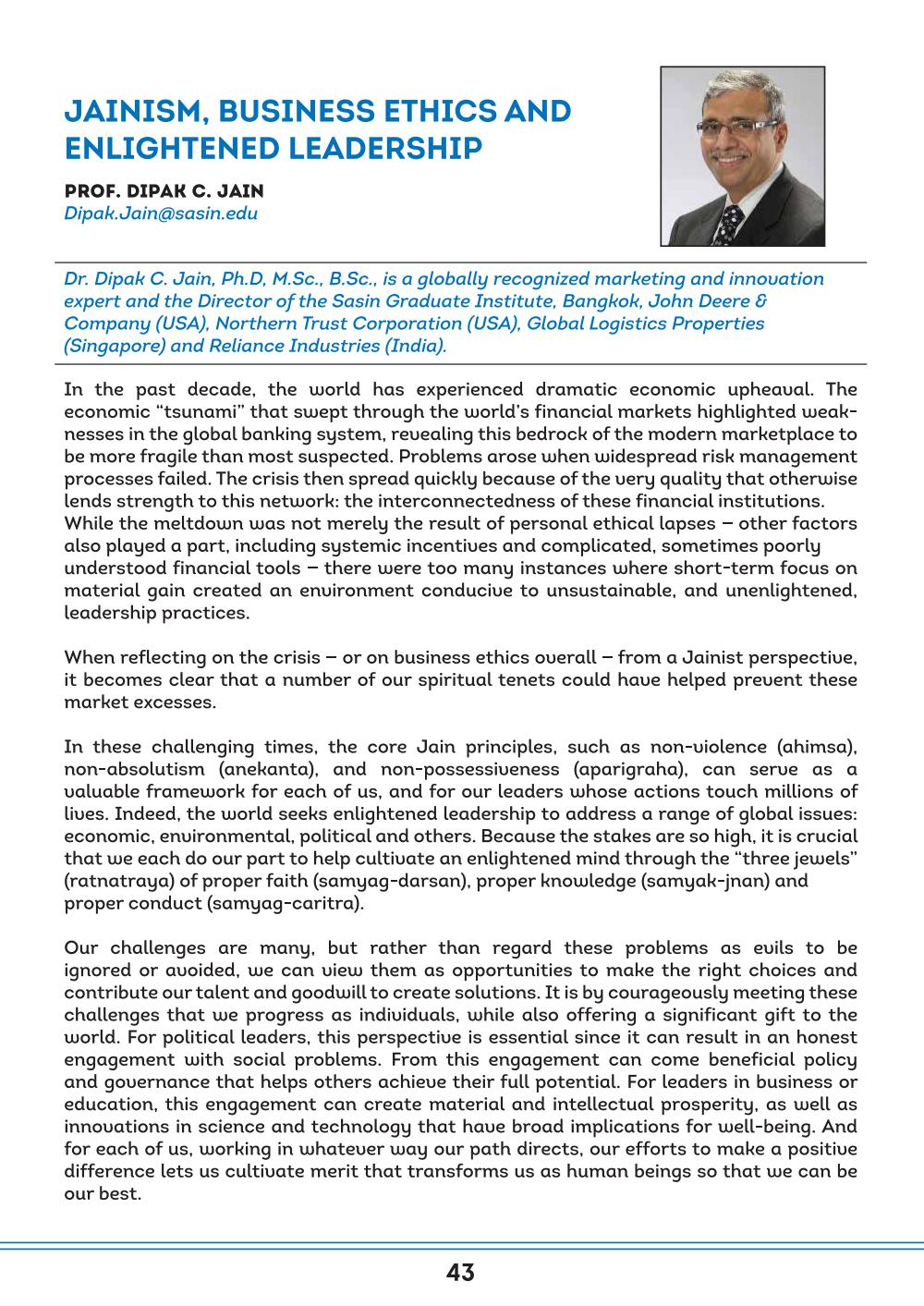________________
JAINISM, BUSINESS ETHICS AND ENLIGHTENED LEADERSHIP PROF. DIPAK C. JAIN
[email protected]
Dr. Dipak C. Jain, Ph.D, M.Sc., B.Sc., is a globally recognized marketing and innovation expert and the Director of the Sasin Graduate Institute, Bangkok, John Deere & Company (USA), Northern Trust Corporation (USA), Global Logistics Properties (Singapore) and Reliance Industries (India).
In the past decade, the world has experienced dramatic economic upheaval. The economic "tsunami" that swept through the world's financial markets highlighted weaknesses in the global banking system, revealing this bedrock of the modern marketplace to be more fragile than most suspected. Problems arose when widespread risk management processes failed. The crisis then spread quickly because of the very quality that otherwise lends strength to this network: the interconnectedness of these financial institutions. While the meltdown was not merely the result of personal ethical lapses - other factors also played a part, including systemic incentives and complicated, sometimes poorly understood financial tools – there were too many instances where short-term focus on material gain created an environment conducive to unsustainable, and unenlightened, leadership practices.
When reflecting on the crisis - or on business ethics overall – from a Jainist perspective, it becomes clear that a number of our spiritual tenets could have helped prevent these market excesses.
In these challenging times, the core Jain principles, such as non-violence (ahimsa), non-absolutism (anekanta), and non-possessiveness (aparigraha), can serve as a valuable framework for each of us, and for our leaders whose actions touch millions of lives. Indeed, the world seeks enlightened leadership to address a range of global issues: economic, environmental, political and others. Because the stakes are so high, it is crucial that we each do our part to help cultivate an enlightened mind through the "three jewels" (ratnatraya) of proper faith (samyag-darsan), proper knowledge (samyak-jnan) and proper conduct (samyag-caritra).
Our challenges are many, but rather than regard these problems as evils to be ignored or avoided, we can view them as opportunities to make the right choices and contribute our talent and goodwill to create solutions. It is by courageously meeting these challenges that we progress as individuals, while also offering a significant gift to the world. For political leaders, this perspective is essential since it can result in an honest engagement with social problems. From this engagement can come beneficial policy and governance that helps others achieve their full potential. For leaders in business or education, this engagement can create material and intellectual prosperity, as well as innovations in science and technology that have broad implications for well-being. And for each of us, working in whatever way our path directs, our efforts to make a positive difference lets us cultivate merit that transforms us as human beings so that we can be our best.
43
